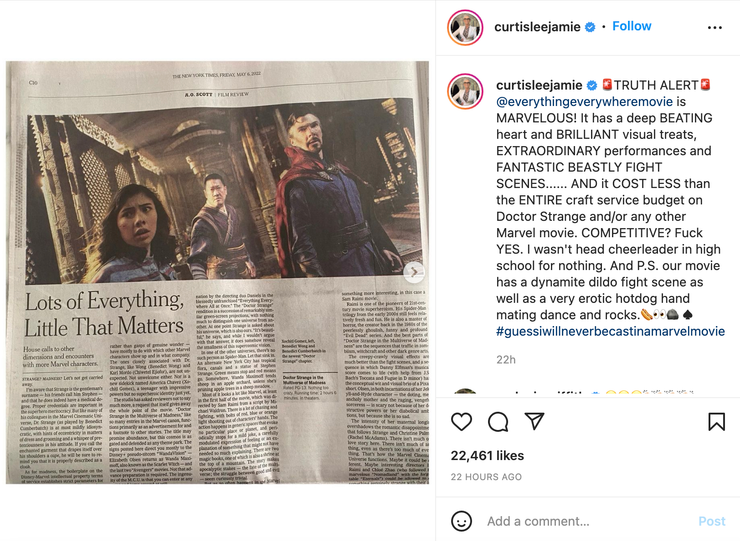Jamie Lee Curtis’ latest quotes on the MCU and the new Multiverse movie compared to her smaller indie movie with the same theme… It brings us back to the one who started the critique: Martin Scorcese
It was Martin who said that the MCU was not cinema but more of a theme park that squeezed out what he felt were “real cinema” in theatres. Then Spielberg chimed in, the guy who did Dune, Copolla, and so on.
I would say we always have had summer blockbuster movies since the first Star Wars. I guess they weren’t a real “threat” until there were (like now) a LOT more being churned out by the MCU and DC movies.
It is hard to argue for or against it all. Even some here on the board say that the movies and overall production are cookie cutter.
Spielberg predicted that these cape movies will eventually go like the westerns. Then again, he was the one who insisted that all movies for the Oscar must be in theatres and not streamed. Then came Covid.
I have to say that there is room to watch what the consumer makes room for. It is not like consumers will not watch the next Scorcese project
There is such a thing as “franchise fatigue” but the MCU is varying bringing forth new characters. I mean almost all the original Avengers are replaced now (they will get to a new Stark soon)
Who knows? So what say you?


